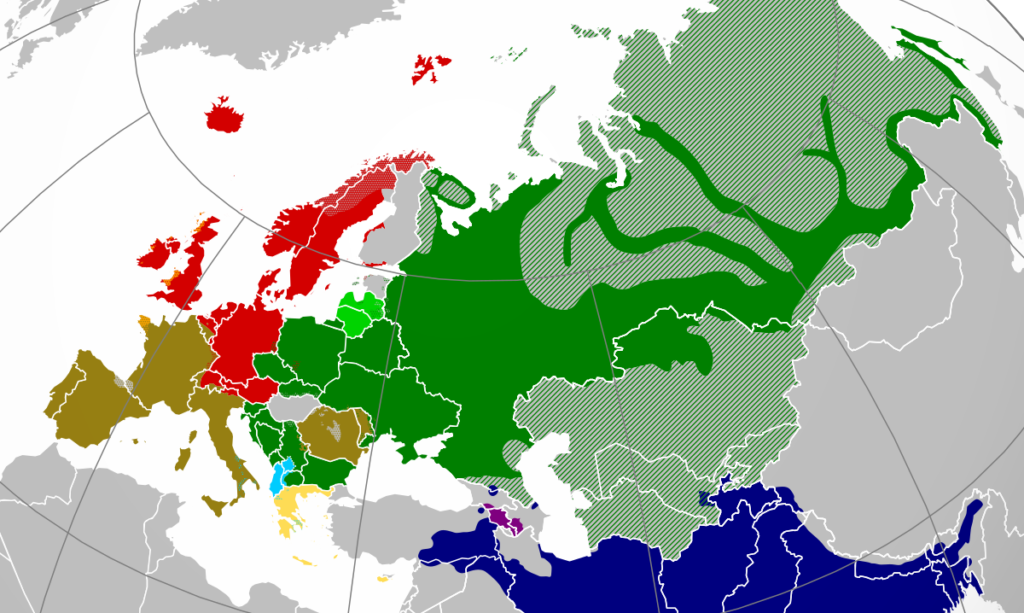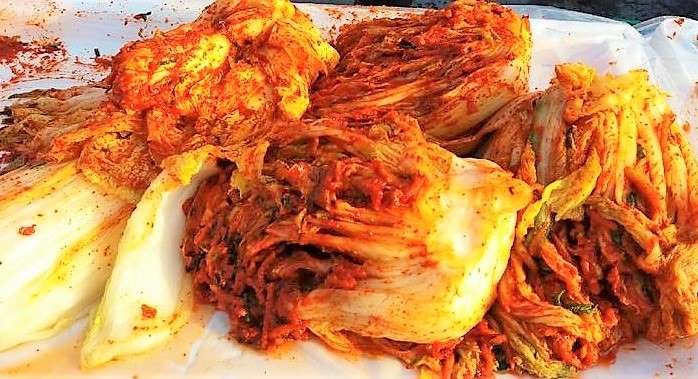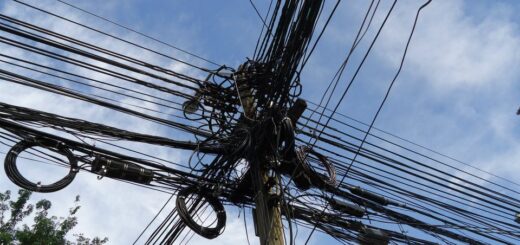How Culture Shock Makes You A Better Person?

After quitting my job, I left my home country and decided I wanted to travel the world. I lived in six different countries for the long term. The experience of culture shock has characterized my life for the last ten years. Mostly, it has been frustrating, but I have also experienced the benefits of culture shock.
The countries I used to live in
First, I moved to southern Italy, then to Cyprus, Malta, northern Italy, South Korea, and Germany.
Although Calabria in the South and the northern province of Veneto are legally part of one country, they are like chalk and cheese. Almost literally. Veneto is a stronghold of the high sciences, architecture, and arts (think of the University of Padova or St. Mark’s Square in Venice). The foundation of the economy of Calabria is still agriculture. The northern Italians jokingly call the southern provinces Africa. So for me, these two experiences were like living in two different countries.
I also moved back to Hungary for a while, where I was also in a state of culture shock. I lived in Hungary for the first 30 years of my life, and I know my home city like the back of my hand. But when I returned here, the habits annoyed me.
Six countries in ten years.

What is culture shock?
When you move to a new country, even the simplest tasks seem to be unconquerable obstacles. This frustration can make you anxious, and angry at the locals. You can experience homesickness.
In layman’s terms, this is a culture shock.
For example, if you spend most or all of your life in one city, paying a gas bill is part of your daily routine. You do not even think about it because you have done it on so many occasions that it is in your muscle memory. You need not usually even deal with it because automatic payments deduct funds from your account.
When I moved to South Korea, paying the gas bill for the first time took me about one month. At first, I did not know which one of the roughly 90 mailboxes was ours. (We lived in a 32-story skyscraper). Then I could not read the invoice because, at that time, I did not know anything in Korean other than ˝hello˝ or ˝thank you.˝ Then, I did not know where to pay the bill or how to get there. Eventually, I learned that you could pay utility bills at the checkout at any convenience store, but it took me a lot of time.
Simple tasks, everyday scenarios are novelties if you move to a new country. Which bus do you need? What are the national holidays? How to recycle trash?
All these everyday frustrations happen in a place where you do not know anyone, where you do not speak the language.
In my case, I move to a new country every two years on average. By the time I get used to a place, it is all starting all over again. That is why I am in a state of constant culture shock.
But it is not always depressing.
Culture shock has benefits
- It helps you being much more adaptable
- It enhances language learning
- You will become more self-confident
- It makes you more of a risk-taker
- You will be more open-minded
I plan to cover these aspects in a series of articles. In particular, how the different countries I used to live in shaped my habits and improved my life.
Now I would like to focus on one aspect:
How travel can shape open-mindedness?
Visiting foreign countries and experiencing different cultures is a crucial part of becoming a well-rounded and open-minded individual.
Immersing yourself in a different country and culture will help you become a more empathetic and understanding person.
As you see people living differently from you and begin to understand the reasoning and methods behind their cultural practices, you experience everything through a new lens.
Here are the different practices and habits I took up during living abroad.
Hungary
Let’s start with the hardest one, my home country. It is not easy to see something from the outside when you are a part of it.
The uniqueness of the Hungarian language

As we can see, Hungarian is unique in Europe. Among the Indoeuropean languages, Hungarian is in the middle of Europe. For German speakers, it is a lot easier to learn English than the Hungarian language. Simply because English and German are related. Even Sanskrit is closer to English than Hungarian. In Hungary, the proportion of speakers of foreign languages is low, and the main reason for it is the uniqueness of the Hungarian language.
Work hard
Take a person whose mother tongue is a world language like English or Spanish. If they want to be successful, they need to be diligent, smart, hardworking, etc. This is true for a skillful hairdresser, the manager of a successful restaurant, or an internationally renowned research doctor.
Now, if your native language is unlike any other, you must first acquire a world language. With lots and lots of learning, you acquire an ability that other people are born with. And once you’re at Ground Zero, you can start learning the fundamental skills for your profession. It’s not fair, but it teaches you that you need to work more to achieve your goals than those whose mother tongue is an Indo-European language.
The Fermi Paradox
Physicist Enrico Fermi was said to be a firm believer in the existence of extra-terrestrials. He was frustrated by the lack of evidence of their existence. He reasoned that advanced civilizations should by now have filled the Galaxy.
Leo Szilard gave a perfect reply: ˝They are among us, but they call themselves Hungarians˝.

Play hard
In many statistics, Hungarians are world leaders: obesity, suicide, alcoholism. Now how is that a positive trait? It is not, but existence as an alien (Hung-alien) is not always easy.
Italy
Italian cuisine is not just pizza and pasta.
Pasta is the first course of a meal, but not spaghetti with meatballs until you explode. It is 80 grams of dry pasta per person. The second course is salad and vegetables with meat or fish (and not the other way around). Italians do not eat huge portions, and this is how they stay good-looking. It is also a fundamental bit of advice they could give to foreigners.
Family meals
It is essential to spend time with our family, for instance, to sit down for a meal with them. We seem to have forgotten this in the 21st century. Italian still do lunch breaks, when they go home from work, and the family eats together.

Uscire
It means going out. But not in the same sense as in English, where going out stands for entertainment, dates, drinking in a bar, etc. Italians mean it in a more literal sense: leave the house. So you do not sit inside all day long, but you go on a walk instead. You can run an errand, or you can have a café at a bar. Just stop being a couch potato!
By the way, bars. In Italy, they are places where you go for breakfast to have coffee.
Non ti preoccupare
One of the first phrases I learned in Italy was ˝non ti preoccupare.˝ It means ˝don’t worry.˝ An indispensable piece of advice everyone should follow is not to worry about things you can’t control.
South Korea
As a European, I got the most punches in the face from culture shock in Korea. It is on the other side of the world. They use their own writing system, the hangul. The people look different, and they live their life following the rules of Confucianism.
Politeness
It comes from Confucianism. It is respect for the elderly. In the subway cars, there are reserved seats for the elderly, sick, and pregnant people. They are kept empty even during rush hours. We need this so desperately in the Western world.
Masks
During the pandemic, it is a hot topic. Masks have become compulsory almost everywhere, and we hate them. In Korea, people always wear masks if they feel that they have a cold. Out of respect for other people. Period. After leaving Korea and before covid, I also took up the habit of wearing masks when I had a cold. People in Europe thought I had gone mad. Hopefully, from now on, it will change.
KBPs
I Googled it, and this term does not exist. It is something me and my husband made up. It stands for Korean Beauty Products. Before moving to Korea, I had not heard about the Korean skincare routine. After moving there, though, I got hooked up. When you are in the Western world, skincare consists of cleansing and a moisturizer. If you are following the fashionable crowd, you might include a toner in your routine.
Now, in Korea, everyday skincare is a 10-step routine. After trying that, I will NEVER go back to plain moisturizer, and my skin is grateful. People say that I look younger than my age.
Food
You probably know kimchi. It is one of the most important dishes in Korean cuisine. “Kimchi” is Korean terminology for fermented vegetables which contain salt and spices and is served as a side dish with every meal. Kimchi is recognized as a spicy fermented cabbage dish globally, and it is one of the healthiest foods in the world. The fermentation process fills up the kimchi with healthy lactic acid, which is beneficial for your gut.
Koreans value food for the beneficial effect on the body.

Cyprus
Taxi-Daxi-Endaxi
When talking to the Cypriot, everyone thinks that every second word they say is ˝taxi.˝ Then we realize that no one wants to drive us anywhere. After a while, we learn that it is not “taxi” but “endaxi”, and it is the most important phrase for Cypriots. It means okay, and it is like “non ti preoccupare” for Italians. Depending on the context, it’s translated as “I don’t care” “well, no problem,” “it is all good,” etc.
Again, if you cannot influence the outcome of a situation, then why bother?

Military and culture shock
We are a military family, and we are always on the move. It feels like we are just getting started. We have no idea where we are moving next.
I am sure wherever it is, it will be super frustrating in the beginning, and we will hate it. But in the end, we will enrich our lives with some local habits, which will be beneficial in the long run.





Very interesting perspectives! – especially regarding masks in other cultures!
Thank you for the feedback 🙂
This is a very well-written piece, and it kicked the traveler in me. For starters, if you got a real cultural shock in Korea, then trust me India would be like a full course meal for you. But you beautifully mentioned these shocks help us evolve as humans. Though a lot depends on how we respond to these shocks?
Thank you Ramya.Trust me, India is nr # 1 on my bucket list, we just never made it there.
I remember experiencing culture shock when I lived in Germany for 6 month when I was 17. Agree that it builds your resiliency with all those positive attributes. Now, I find there isn’t too much difference between (most of) Europe and home in Canada.
I do think getting a culture shock is one way that most people get encouraged to learn more about a country and try to adapt more to their ways of living. Great read!
What a beautiful perspective. I think as much as we can and do prepare before traveling/moving, there is always culture shock. I love your perspective on how beneficial this is. What a great way to build understanding and great education! I think it’s so cool how you have moved around to learn different cultures!
Such a great insights and perspectives! Living in South Korea must had been so amazing.
I loved reading all the different places you’ve lived. I moved to Japan when I was 20, and was expecting a culture shock, and didn’t really experience it. Then I moved to the States when I was 26, and really experienced culture shock. Weird huh! I really like the way you explained Italians live – I’m sure there’s lots of great lessons for us all there. Would love to go and live that myself.
That’s an interesting take on things. I don’t know if I’ve really ever paid attention to my own culture shock when in a new location, but I definitely will now!
This was a great read, thank you! I agree that culture shock is one of the more valuable aspects of travel– not always in the moment, but in the long term it invariably helps us grow. Thanks sharing your experiences, you really learned things beyond what those of us on shorter trips get.